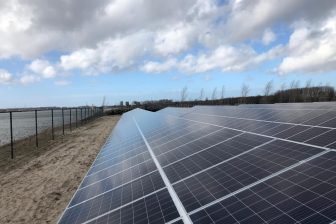Bank of England: ‘Te snelle, maar ook te trage energietransitie kan economie schaden’
29 september 2016 – Mark Carney, gouverneur van de Bank of England, waarschuwt dat ‘rapid low-carbon transition could damage economic stability’. Tegelijk waarschuwt hij voor de risico’s van traagheid: ‘Once climate change becomes a clear and present danger to financial stability it may already be too late.’
Uit een bericht van Edi.net
‘(…) [Mark Carney:] ‘Too rapid a movement towards a low-carbon economy could materially damage financial stability. A wholesale reassessment of prospects, as climate-related risks are re-evaluated, could destabilise markets, spark a pro-cyclical crystallisation of losses and lead to a persistent tightening of financial conditions: a climate Minsky moment.” (…)
Carney also noted that the “crucial” Paris Agreement – which is primed to come into force this year – was only steering nations towards a global temperature rise of at least 2.7C by 2100, stating that more would need to be done to stretch the goals. “The world has committed to do something, but not yet enough to meet its stated goals,” Carney added. “Therefore, Paris clarifies actual and stretch objectives. It provides detailed climate policies and creates the prospect of a future ratcheting up of efforts. In doing so, it greatly increases transition risks as well as opportunities. By bringing forward the horizon, it puts a premium on the ability of private markets to adjust.”
Carney has previously warned that around $7trn would need to be spent on new green infrastructure across the globe in order to cut carbon emissions over the next 20 years. (…)’
Bronnen
Edi.net, 26 september 2016: ‘Rapid’ low-carbon transition could damage economic stability, warns Bank of England



